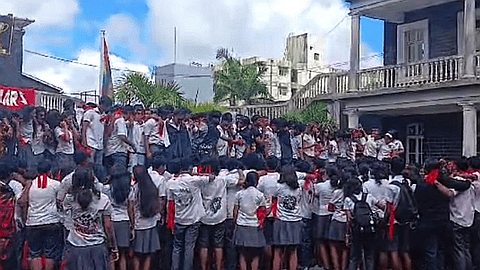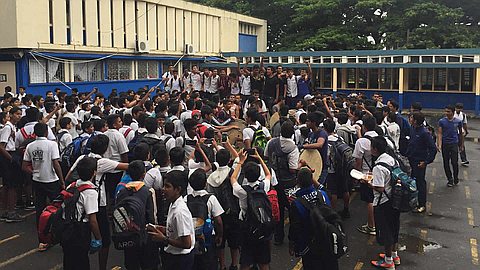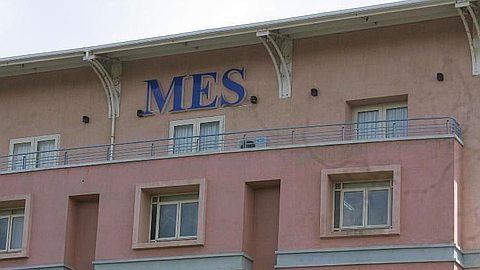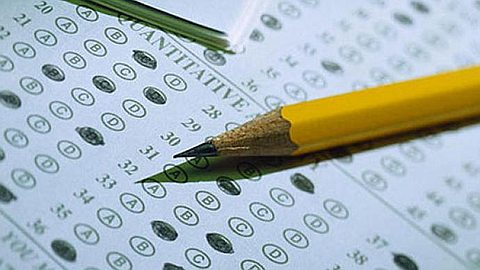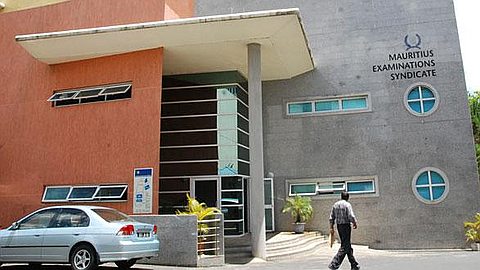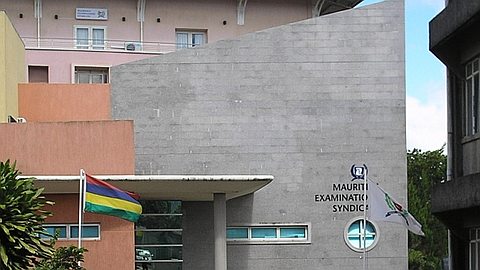The SC/HSC controversy: method in the madness?
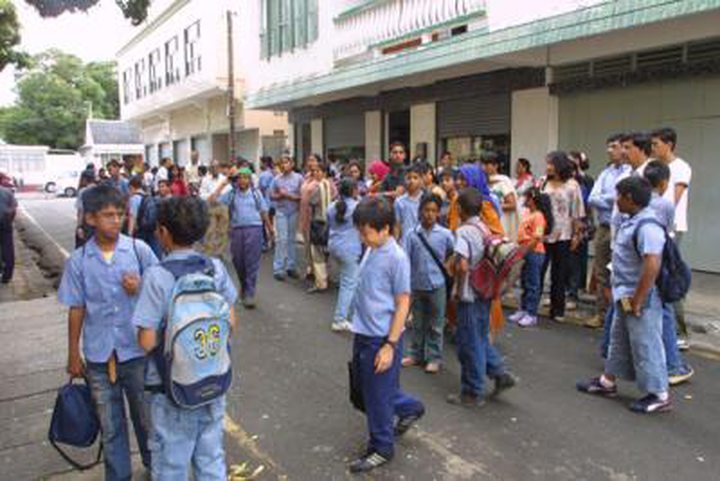
With industry experts remaining divided on the issue, Weekly looks into the numbers behind a decision that could shape the future of our education sector.
The transition from the School Certificate (SC) to the Higher School Certificate (HSC) is often a critical one. For those who fail to get the required grades at the SC, further education in the mainstream system becomes next to impossible with a transfer to vocational courses privileged. Over the last few years, pupils with three credits at the SC have been given access to the HSC. However, in a unilateral move last week, it was announced that pupils would need to have five credits instead. This is not the first change at this particular level. The initial requirement was four credits until Vasant Bunwaree, former minister of education, brought it down to three.
The argument made in favour of the move is that it is likely to improve the faltering results at the HSC. While the percentage pass last year was a slight improvement on the two previous years 75.46% in 2016 as opposed to 75.31% in 2015 and 75.40% in 2014 it was still at least 2% lower than the percentage pass in any year from 2005 to 2013. The best performance during that time was back in 2011 with a percentage pass of 79.31%.
On the other hand, the performances at SC have also fallen significantly. From 2005 to 2012, the percentage pass was well above 75% with a peak of 78.86% in 2006. In 2016, the percentage pass was a lowly 72.01%. At first glance, the move announced last week by the government would make sense given the decline in performance over the last decade.
However, that might be a simplistic remedy to an issue that is indicative of a more deep-rooted problem with our education sector. The comparison between SC and HSC results acts as concrete proof of that concern. The percentage pass has fallen at a more worrying rate at the SC level, showing that the origins of the problem at the HSC start a lot earlier. In 2005, the percentage pass at the SC was 78.38% and only 78.17% at the HSC. That was the last time the SC performance bettered the performance at the HSC. From 2006 onwards, the percentage pass at the HSC is consistently higher than at the SC. It means that the focus should be more on trying to improve results at the SC rather than making access to the HSC more difficult. At face value, it seems rather counter-intuitive to increase the number of credits necessary to go to the HSC when the performance at the SC is at its lowest point. «With the Nine-Year Schooling, every pupil will move on to secondary school regardless of their results in Grade 6, so it is unfair to expect all of them to be excellent,» Lucien Finette, former director of the Mauritius Examinations Syndicate (MES), told Weekly. «You are condemning these pupils from the very start and punishing them later.»
There is also criticism levelled at the government for the lack of an alternative proposed to pupils who might not make it to the HSC. In 2014, 15,632 pupils sat for the SC exams. From this batch, only 9,285 managed to take the HSC exams in 2016. That amounts to 6,347 pupils that have been left to fend for themselves in between. The worst of that statistic over the last decade happened with the 2008 SC batch, with 17,794 sitting for the exam and only 9,767 of them eventually taking the HSC exam in 2010. That is a staggering 8,027 pupils who sat for the SC exams in 2008 but who could not do their HSC.
The numbers are even more appalling when considering the last 10 batches who took the HSC exams. There was a total of 70,203 out of 167,660 pupils who failed to make the step from taking part in the SC to taking part in the HSC. It means that close to 42% of those who sat for their SC exams from 2005 to 2014 could not even have an attempt at finishing school. That is without even considering those who passed their SC and failed their HSC. As a matter of fact, one of main issues over this change is the fate reserved for the people who will be left behind. With four credits initially required and then only three, there was already 42% of pupils who did not make it to the HSC exams. With the five credits requirement, that percentage is set to increase even more. «We all know that the number of pupils leaving school early will increase now,» Yahya Paraouty, president of the Union of Private Secondary Education Employees (UPSEE), told Weekly. «The education system that we have here is unique in the world, with special focus on producing laureates even though thousands of pupils are left behind. »
The stakeholders in the education sector remain bitterly divided over this issue with some believing that this new requirement will lead to better results at the HSC. Some have even argued that this will serve as extra motivation for pupils who might be tempted to just breeze through their exams. However, this is unlikely to bring change without significant improvement at the grassroots level. If the education system is setting up the pupils, who are not part of the elite, to fail, this change will only serve to increase the performance gap between the cream of the crop and the rest of the pupils.
The question that we have to ask ourselves is simple. Do we want an improved elite coming out of our education system or do we want equal access to education for all pupils? If the answer is the latter, then we are surely headed in the wrong direction.
Gambler’s fallacy
Leela Devi Dookun-Luchoomun is the minister of education. This is a statement that we often have to repeat to ourselves to understand the purpose that she serves in this government. Her policies have been so incoherent in recent months that it has to be asked whether she is on a fishing expedition, keen to try outrageous tactics until she gets one right.
It has to be said that consistency is not the forte of the minister. In our system ineluctably favouring the elites, her five-credit requirement to access further education after the School Certificate (SC) makes sense. She wants the elite to become even more elite and the country to thrive on the expertise of the select few. Is that what we really want? No. Is that what she really wants? Hard to say.
Her stance on the Nine-Year Schooling seems to point the other way. With the abolition of the Certificate of Primary Education (CPE), the minister came up with the ‘revolutionary’ Primary School Achievement Certificate (PSAC) as an allegedly easier and less competitive alternative. Pupils will find it easier to make their way into high school with Grade 7 now more accessible than ever before.
Let’s break this down. We are trying to do away with our elitist education system by giving more children access to secondary education. After five years of struggling through high school still managing to make it to the SC exams we tell them that after careful consideration, they are not good enough. They won’t form part of the elite. What is the point of even trying then? The simple truth is that we are setting up our children to fail.
In all honesty, Dookun-Luchoomun could have made a better case for this controversial move. It would be unfair to say that it is all wrong. There will be pupils who could be motivated to work harder and make it to the Higher School Certificate (HSC). Pupils who would probably have satisfied themselves with three or four credits without this change. They would be the success stories. The very nature of success stories is that they depict rare feats achieved while facing significant difficulty. Is it our job to make education so hard for our children so that just passing a grade becomes a success story?
Imagine this: Dookun-Luchoomun flips a coin hoping that if the outcome was heads, her changes will be successful. Her chances of success are 50/50. She flips once and gets tails. She flips twice and she gets tails. She flips thrice and she still gets tails. However, she tries again, convinced that after a run of tails, she would logically have more luck this time around and the outcome would be heads. This is the gambler’s fallacy. Her chances of failure are exactly the same as the first time. Let this serve as a cathartic experiment. With so many debatable changes, the minister of education is gambling with the lives of thousands of pupils and we are letting her.
